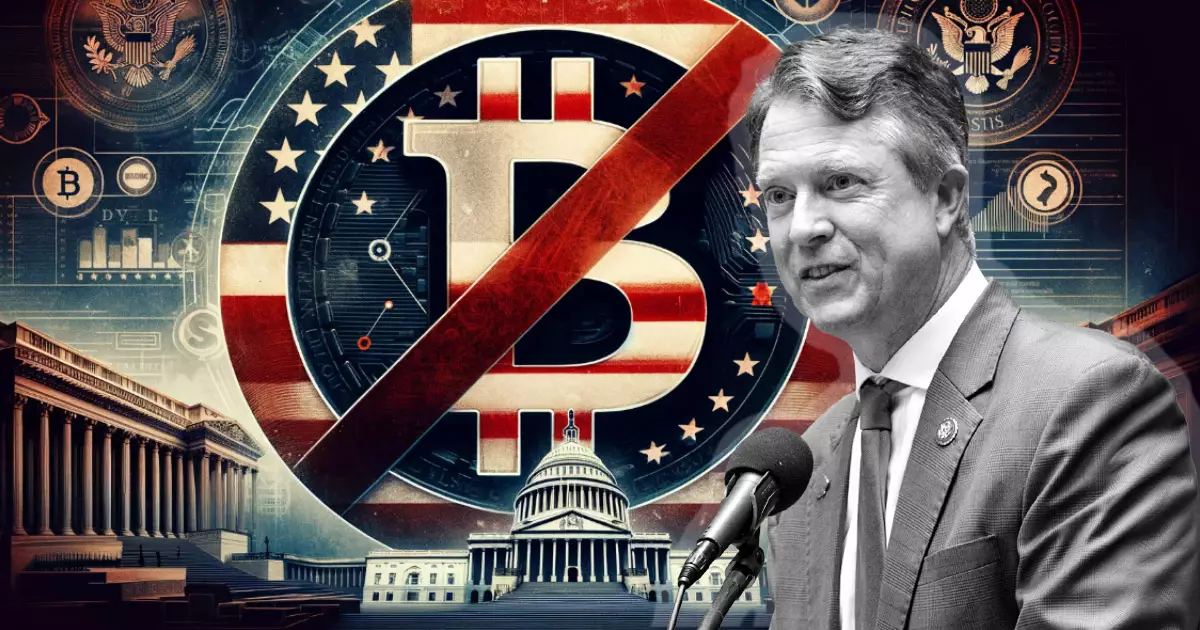U.S. Senator Roger Marshall recently shocked the cryptocurrency community by revealing that he sought assistance from the American Bankers Association in formulating the Digital Asset Anti-Money Laundering Act. In a speech delivered at the Parliamentary Intelligence-Security Forum, Marshall admitted that he and Senator Elizabeth Warren approached the Association for help in crafting the legislation. The goal was to ensure that cryptocurrencies are held to the same regulatory standards as traditional banks. While this collaboration may have garnered support and buy-in from the banking industry, it has drawn significant criticism from crypto stakeholders.
Disappointment among Crypto Advocates
Coinbase CEO Brian Armstrong expressed disappointment with lawmakers who seem to be advocating for banks rather than embracing the potential of cryptocurrencies. Armstrong highlighted the dissatisfaction of many Americans with the existing financial system, suggesting that being against cryptocurrency could be an unwise political move leading up to the 2024 elections. Others in the crypto community, such as Sam Lyman, the director of public policy at Bitcoin miner Riot Platforms, believe that this collaboration between lawmakers and banks is a clear attempt to stifle the growth and innovation within the crypto industry. Lyman stated, “They’re not even trying to hide it anymore: the big banks wrote the bill to kill crypto in the US. But please, keep telling me this is just about AML.”
The Digital Asset Anti-Money Laundering Act has gained support from various US lawmakers and Wall Street banks over the past year. These supporters argue that the bill addresses existing loopholes and brings the digital asset ecosystem in line with established anti-money laundering and countering the financing of terrorism (AML/CFT) frameworks that govern the traditional financial system. However, this push for enhanced regulatory oversight has been met with resistance and skepticism from the crypto community.
Senator Warren’s Anti-Crypto Stance
Senator Warren’s involvement in the Digital Asset Anti-Money Laundering Act and her recent statements criticizing the cryptocurrency industry have fueled further controversy. In a tweet on December 19th, Warren claimed that crypto companies were hiring “an army of former defense and law enforcement officials to lobby against new rules shutting down crypto-financed terrorism.” This statement generated severe backlash from the crypto community, with many questioning Warren’s understanding of the industry and accusing her of fear-mongering.
Backlash from the Crypto Community
Mike Novogratz, the CEO of Galaxy Digital, criticized Warren’s motives, describing her as disingenuous and someone who seeks attention through headline-grabbing statements. He highlighted the irony in Warren’s transformation from a well-intentioned public figure to a politician making controversial remarks. Pierre Rochard, the Research VP of Riot Platforms, accused Warren of attacking the First Amendment by attempting to silence the voices of Bitcoin proponents. Rochard argued that engaging in the policymaking process is a right that should not be hindered by laws written by big banks without proper debate.
Ripple CTO David Schwartz also expressed anger at Senator Warren’s comments and actions. While the specifics of his response were not provided, it is clear that Warren’s refusal to embrace the potential of cryptocurrencies has sparked frustration among industry insiders.
The revelation of collaboration between Senator Marshall, Senator Warren, and the American Bankers Association in formulating the Digital Asset Anti-Money Laundering Act has generated significant controversy within the crypto community. This partnership has raised concerns about the intentions behind the legislation and has led to skepticism about the future of cryptocurrencies in the United States. As the debate surrounding the regulation of digital assets continues, it is essential for lawmakers to consider the potential benefits and drawbacks of any proposed legislation to ensure fair treatment and growth within the crypto industry.


Leave a Reply